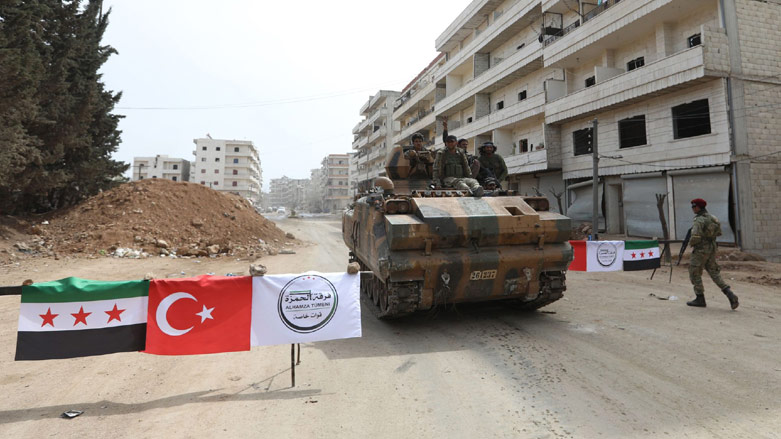UN blocked from reaching those displaced from Afrin: Spokesperson

ERBIL (Kurdistan 24) – UN workers are being blocked from reaching some 137,000 Kurdish people displaced from the Syrian enclave of Afrin as a result of the conflict raging there since Jan. 20, a UN official said on Wednesday.
“In addition, an estimated 150,000 people remain inside Afrin district, where access to people in need continues to be extremely limited,” UN spokesperson Stephane Dujarric said during the daily news briefing, referring to the UN Office for the Coordination of Humanitarian Affairs.
Those displaced are largely in or near the towns of Tal Refaat, Nabul, Zahraa, and Fafin, said the international organization.
“While the UN continues to provide assistance to people displaced from Afrin, the UN does not have direct regular access to the district and humanitarians operating in the area continue to face access challenges, largely due to movement restrictions enforced by actors on the ground,” Dujarric said.
Though he didn't mention them by name, Turkish troops and allied Syrian rebels of the Syrian Democratic Forces (SDF) have military control of the area.
After almost two months of clashes, Turkish forces and SDF fighters took Afrin on March 18, a move to drive the US-backed Kurdish People’s Protection Units (YPG) out of the region. Ankara views the group an extension of the outlawed Kurdistan Workers’ Party (PKK).
Dujarric also mentioned that, on Tuesday, Emergency Relief Coordinator Mark Lowcock briefed the Security Council, providing updates on Raqqa and other places.
Lowcock stated that since the Islamic State (IS) was forced out of Raqqa in October, nearly 100,000 people have returned to the city.
“However, conditions are not conducive for returns, due to the high levels of unexploded ordnance and improvised explosive device contamination, widespread and severe infrastructural damage, and a lack of basic services,” Lowcock said.
Editing by John J. Catherine
